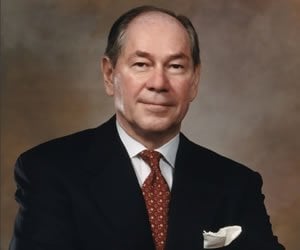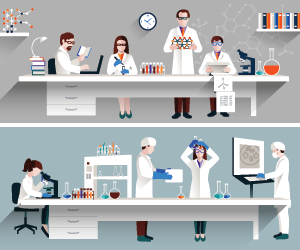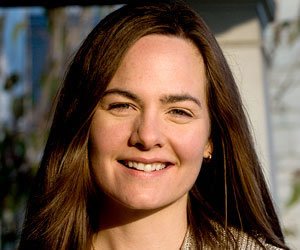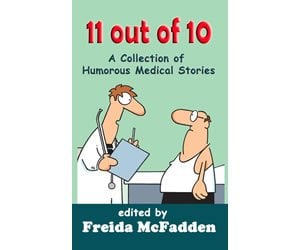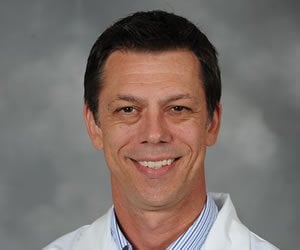What You Should Know is an ongoing series covering a range of informational topics relevant to current and future healthcare professionals.
The numbers alone make it a significant issue: as of 2015, 23 states and the District of Columbia have legalized the use of medical marijuana – and 9 more states are currently working on legislation to do the same. Two more states – Washington and Colorado – have gone so far as to legalize its recreational use. It is likely, therefore, that medical students today will feel the effects of medical marijuana use when they go into practice for themselves.
Medical – and recreational – marijuana use is a complex issue with medical, political, and social implications. Below are evidence-based arguments for and against this use to give student doctors the opportunity to understand the finer points of this controversy.
medicine
The Million Dollar Question
Interview season. The time of year that roads and skies swarm with the best and brightest medical students to all corners of the country taking aim at the next step in their training – residency. Believe it or not, behind the shiny brochures, extravagant dinners and polished powerpoint slides, residency programs are just as nervous about attracting top talent as you are about getting your top choice.
The interview trail is usually a blur of dry cleaning bills, rental cars, and the smell of breath mints masking cheap coffee mixed with nervous sweat. The broken record of the obligatory “strengths and weaknesses” question loops in your head. One of the more terrifying moments in the day comes when an interviewer asks: “What questions do you have for me?” Regardless of who asks it–the intern only four months above you in training or the gatekeeping program director–you know you have to ask something. So why not make it count?
The Importance of Disability Insurance for the Young Physician
The thrill and responsibility of holding someone’s life in your hands, the ability to act under pressure, and the satisfaction of doing good in the world—these are among the qualities that attract people to the medical profession. In a culture that’s quickly diminishing the value of established professions, there’s still a universal appeal to becoming a doctor.This doesn’t mean seeking a career in medicine is without its obstacles. The importance of a thorough education—at least four graduate years—cannot be understated. Add in the time it takes to complete an internship and a residency, and it’s easy to see why a medical path can be too daunting for many. On average, it takes about 11 years for a medical student to become an independent doctor. If students begin medical school in their 20s, they won’t begin to see patients as a physician until they’re in their 30s. Add to that an average price tag of $166,000 in student loans for medical school, and even the most gung-ho medical students begin to balk. Suffice it to say, a career in the medical field is a huge time and financial investment.
What You Should Know: Connecting With Pediatric Patients
What You Should Know is an ongoing series covering a range of informational topics relevant to current and future healthcare professionals.
Even for student doctors who are in training to be pediatricians or specialists in pediatric health, connecting meaningfully with these small patients can sometimes be difficult. However, this connection is necessary to establish if a doctor’s goal is to give their patient the best care possible.
It is helpful, then, to take a look at what experts say about how doctors can connect to their pediatric patients.
The Art and Science of Narrative Medicine
Many medical students, even those with a background in the liberal arts, may have a hard time conceptualizing the role that the humanities–in particular, the art of the narrative–may have to play in clinical practice. However, a relatively new theory and practice of medicine, called narrative medicine, is beginning to take root and contains elements of both medical and language arts.
What is Narrative Medicine?
The phrase “narrative medicine” was coined by Dr. Rita Charon, one of the founders of this movement, which began to develop in the 1990’s in response to the perception of detachment and over-professionalism in medical practice. Dr. Charon wanted to explore new ways that medical practice could become more humanized and emotive– and lead to greater satisfaction with the clinical relationship for both doctors and their patients. In her definitive article, entitled “Narrative Medicine: a Model for Empathy, Reflection, Profession and Trust” which appeared in JAMA in 2001, Charon introduces her readers to this new concept by noting that “adopting methods such as close reading of literature and reflective writing allows narrative medicine to examine and illuminate four of medicine’s critical narrative situations: the physician and patient, physician and self, physician and colleagues and physician and society…By bridging the divide that separates physicians from patients, themselves, colleagues and society, narrative medicine offers fresh approaches for reflective, empathic and nourishing medical care.”
20 Questions: Norman Pastorek, MD – Plastic Surgery
Norman J. Pastorek MD, FACS specializes in facial plastic surgery. He trained at The University of Chicago Illinois and is board certified by both the American Board of otolaryngology and the American Board of Facial and Reconstructive Surgery. He has a private practice on Park Ave in New York.
When did you first decide to become a physician? Why?
It was really by accident. I had graduated from high school and decided to go to a college in Davenport, Iowa on a whim. At that point, I was considering being an engineer, so I took all of the required math and mechanical drawing courses. Long story short, I hated it—and I did not excel at my work because I didn’t like what I was doing.
After that first year, I went back to work in a factory where I was a welder. I was content enough doing that work, so for a time I thought I would just stay on that course. It wasn’t until I ran into an old coworker who was going into medicine that I started considering other options: he asked if I liked biology and suggested I go into pre-med. So I did.
On The Shoulders of Giants: Tips for Aspiring Female Surgeons
While there were many engaging sessions held at the 2015 UC Davis Pre-Health Conference, a few stood out for being exceptionally inspiring. Dr. Lisa Lattanza’s lecture, “How to Be a Successful Female Surgeon”, was one of these standouts.
This isn’t surprising, considering Dr. Lattanza’s pedigree. The chief of Hand, Elbow & Upper Extremity Surgery at UCSF Medical Center, she is known both for her surgical skills and her inexhaustible efforts to encourage and mentor the next generation of female surgeons. She is the president and co-founder of The Perry Initiative, a Bay-area-based foundation which provides educational and experiential opportunities for young women (primarily high-school and early-college-aged) interested in orthopedic surgery – a project which recently earned her the prestigious Jefferson Award for public service.
Seize Your Undergrad Research Interview: Ask the Questions That Matter
When selecting your classes each semester you apply a methodical approach. You no doubt consider several factors such as: What will satisfy major requirements? What will help you prepare for the MCAT and add weight to your transcript? And, of course, what sounds the most interesting? Essentially, you don’t play “registration roulette” and find yourself in advanced string theory when you really need a cell biology course.
Yet, when it comes to an undergrad research interview, most students don’t know that they need a solid strategy for asking questions that will allow them to evaluate the position. Instead, many approach interviews with a single goal in mind: get an offer to join the lab. Although this is a good goal keep in mind, it should not be your sole objective in a research interview.
20 Questions: Natalie E. Azar, MD – Rheumatology
Dr. Natalie E. Azar is assistant clinical professor of medicine and rheumatology at the Center for Musculoskeletal Care NYU Langone Medical Center, as well as medical contributor to powerwomentv.com, member of the admissions committee for NYU School of Medicine, and instructor of the Physical Diagnosis Course at NYUSoM. She received a bachelor’s degree in psychobiology from Wellesley College (1992), where she was a Phi Beta Kappa (1991), Durant Scholar (1992), and Who’s Who Among American College Students (1991). Azar received her Doctor of Medicine from Cornell University Medical College (1996), with honors for academic excellence in anesthesiology (1998). Dr. Azar completed both an internship and residency in internal medicine at New York University Langone Medical Center (1996-97, 1997-99), and a fellowship in rheumatology at Hospital for Joint Disease, New York University Langone Medical Center (1999-2001).
Welcome to Healthcare 5.0: A Conversation with David M. Carlisle, MD, PhD
At this year’s UC Davis Pre-Health Conference, the concept of innovation was on everybody’s minds and lips. There’s no denying that this is an exciting time to be in the medical field; between new technologies, healthcare reforms, and an increasingly global society, things are changing at a rapid pace.
With all this newness and excitement, it’s easy to forget the reason so many of us go into medicine: to help others. And while the topic of his conference keynote was “Healthcare 5.0”, when SDN sat down with David M. Carlisle, MD, PhD, the focus was on caregiving in the most traditional sense.
Q&A with Physician Writer Christine Montross
Dr. Christine Montross is Assistant Professor of Psychiatry and Human Behavior and the Director of Counseling Resources at the Warren Alpert Medical School of Brown University. She works as a staff psychiatrist at Butler Hospital in Providence, Rhode Island. Before attending medical school at Brown, Dr. Montross graduated from the University of Michigan with a Master of Fine Arts in poetry, and undergraduate degrees in French and Natural Resources.
Five Things to Consider in Choosing an MCAT Prep Course
With the Medical College Admissions Test (MCAT) undergoing major changes in 2015, the first revamp in over two decades, aspiring medical students are faced with new uncertainty in how to prepare for the crucially important exam. Many students are turning to dedicated MCAT prep courses to supplement their self-directed studies, only to be stymied by a market crowded with many alternatives. Here are some important questions to ask when selecting an MCAT prep course.
10 Things to Expect Your First Semester of Research
Even if you have previous lab experience from a high school or college lab class, the first few weeks of a new research experience in a professional research lab will have its challenges, surprises, and probably be quite different from you expect. It might take a few weeks before you feel at home in the lab, but it will happen if you stick with it and commit to learning everything you can about your research project. To help you prepare for your new adventure, here are some things that await most undergraduates at the start of a new research experience.
Chronicles of a Med Student: Time for a Reality Check
I was about to burst with excitement the minute I started medical school. I’m pretty sure I was actually giddy: like so many other pre-meds, I had dreamt of the day when I would finally put my pretty white coat on and actually start learning about things I cared about (that’s not to say everything I’d learned previously was useless—it absolutely wasn’t, but it wasn’t what I wanted). It felt like the longest road just to get to this point and I couldn’t even begin to fathom what was to come. It really was like the journey had ended…instead of just begun.
3 Ways to Prepare for the USMLE Step 1 Exam
The USMLE Step 1 exam is arguably one of the most important tests in a medical student’s career. While a student’s score on Step 1 is taken into consideration amongst many other factors, the score still plays a major role in determining a student’s competitiveness for residency in certain specialties. After all, once a student has applied to a specialty, his or her Step 1 score will partially determine which types of institutions he or she will have the opportunity to interview at. Below are three general strategies to help you prepare for the USMLE Step 1 exam:
Book Excerpt From 11 out of 10: "Prince Albert"
I used to be an Emergency Medical Technician at a very busy Emergency Department. Given that about 70% of all patients that walk in the front door just need little more than a bandage, my job was to treat those low acuity patient under the supervision of a NP/PA or MD/DO. Simple things like removing sutures, bandaging wounds, and assisting the providers in more complicated or invasive procedures. I have three kids that liked to stick stuff where it didn’t belong when they were toddlers and I became quite adept digging things out of ears and noses. Naturally, I became the go-to person for removing foreign bodies and resolving foreign body entrapments in our Emergency Department. I have extracted a ton of weird stuff from ears and noses– things that I didn’t think were possible to get in those spaces to begin with. I had a very high success rate and was generally trusted to be able to handle almost any situation that presented itself.
Getting to Yes: Crafting a Resume for the Medical Field
Since the medical field is full of a wide variety of job opportunities, it is … Read more
20 Questions: Jeffrey M. Whitaker, DPM, FACFAS
Dr. Jeffrey Whitaker knew at a very young age that he wanted to be a doctor, though his specialty remained uncertain until he discovered podiatric medicine as an undergraduate pre-med student. Having graduated Magna Cum Laude with his Bachelor’s degree in Biochemistry from California State University-Long Beach, he later completed a second Bachelor in Cell and Molecular Biology with San Francisco State University, followed by the successful completion of his Doctor of Podiatric Medicine degree from the California College of Podiatric Medicine, which is now Samuel Merritt University. Dr. Whitaker graduated from the DPM program with Honors, ranking 4th in his class, and completed his three-year foot and ankle surgery residency with Western Pennsylvania Hospital, in Pittsburgh.
Blurred Lines: The Doctor-Patient Relationship-in-Training
Reposted from here with permission It is one thing to be a doctor and another to … Read more
Chronicles of a Med Student: We’re All In This Together
Walking into my first day of medical school was a little like walking into my first day of kindergarten (if my memory does not fail me). Everything was brand new: I was being exposed to a new way of learning in a new environment, where people had new expectations of me, and where I was going to start from square one and build up a new circle of friends. I had carried the same set of friends in grade school and though I thought initially that college would’ve felt like this on my first day, it didn’t. I had a lot of friends from high school go to the same college as me, so it just felt like we were hanging out in a new place. And again college is very different from medical school in more ways than I can put into a coherent list. Starting medical school was unlike any other start in my life (besides kindergarten, of course). What if I had forgotten how to make new friends from scratch?!






